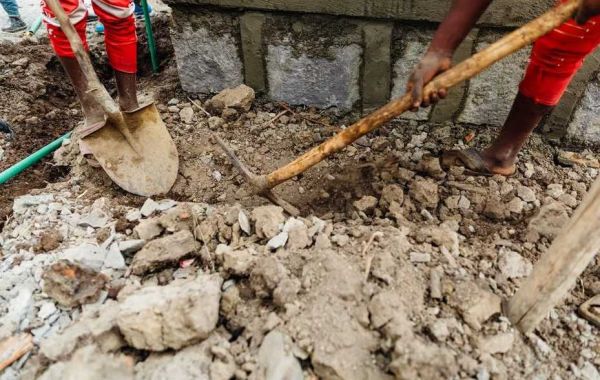Managing dust and debris during a remodeling project is crucial for the success of the endeavor and the protection of your property. Taking a proactive approach to cleanup ensures a smoother process and minimizes potential risks. Whether you're preparing for a remodel or in the midst of one, here are essential steps to optimize debris management.
Before Remodeling: Prioritize proactive measures to minimize mess and stress during your remodeling project. Here's a checklist for optimal debris management:
Clear the Area: Remove all belongings, furniture, decor, and rugs from the remodeling zone. Fragile and valuable items, in particular, should be relocated to prevent damage from dust and debris settling during the project.
Protect Fixtures and Carpeted Areas: Safeguard fixtures and non-removable carpeted areas with materials like corrugated plastic, sticky mats, or plastic coverings. Using plastic materials instead of fabric coverings ensures no penetration of small particles, offering enhanced protection.
Create a Disposal Plan: Arrange for a disposal plan for renovation debris, including drywall, tiling, packaging, and dust. Renting a temporary dumpster in advance is an efficient and cost-effective solution, reducing the risk of damage and injury throughout the renovation.
Consider Dumpster Rental: Secure a dumpster rental ahead of time for efficient debris management. Dumpster rentals are convenient for both large and ongoing projects, typically lasting for a week or more.
Alternative for Small Projects: For smaller projects generating less than 7 cubic yards of waste, consider heavy-duty trash bags and a junk removal crew for efficient waste removal upon project completion.
During Remodeling: To control dust and debris during the remodeling process, implement these strategies:
Establish a Controlled Workspace: Create a single point of entry and exit using a taped-down tarp or plastic to contain dust and debris. This controlled path allows for easy daily cleanup, reducing the spread of particles.
Prioritize Ventilation: Ensure proper ventilation by keeping windows open, taping vents, and using construction air purifiers. These measures protect not only your property but also the well-being of occupants, including pets.
Implement a Daily Cleaning Plan: Execute a daily cleaning routine to maintain a clean workspace. Bag and dispose of debris, sweep or vacuum floors, and clean the entry/exit point. Inspect surrounding rooms for escaped dust and clean as needed. Protective goggles and respirator masks are recommended during all renovation activities.
After Remodeling: Effective disposal of debris post-remodeling requires careful consideration:
Know Local Regulations: Research local rules and regulations regarding the disposal of construction and demolition debris. Some areas may require sorting debris for proper recycling.
Communicate with Dumpster Rental Companies: If using a dumpster rental, inform the company of the types of waste to ensure acceptance. Keep the dumpster on-site throughout the project and schedule its removal once the remodeling is complete.
Consider Junk Removal Services: Hiring a junk removal company is a convenient option, especially for smaller projects. They handle the heavy lifting and loading, offering a more inclusive service.
Search for Qualified Services: Find reputable debris removal services in your area by using keywords such as "30 yard dumpster in Jupiter, FL" and "roll-off dumpster rental near me." Request free quotes from multiple companies to compare prices and assess customer service.
By implementing these proactive measures and strategies, you can streamline the debris management process, ensuring a successful and stress-free remodeling experience for both residential and business projects.








